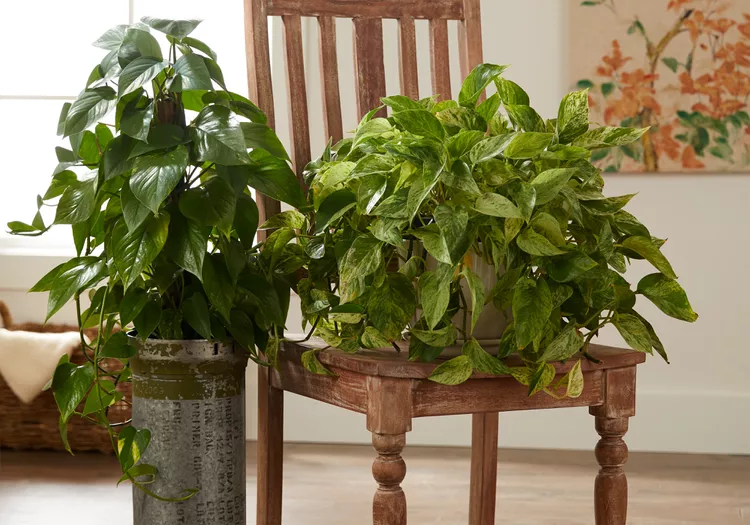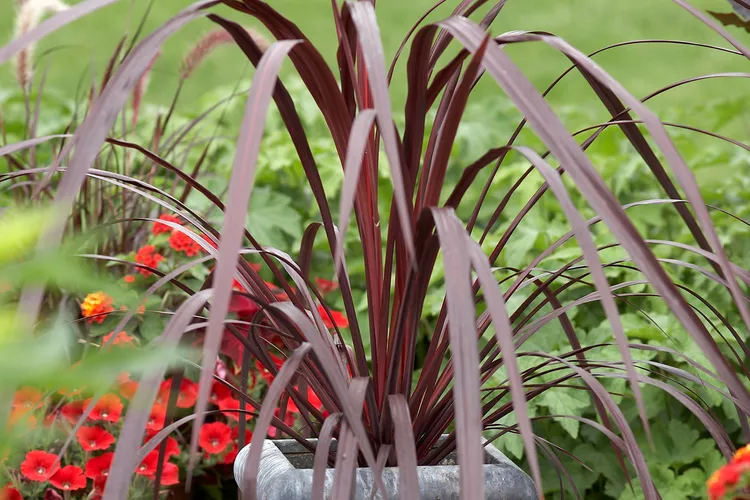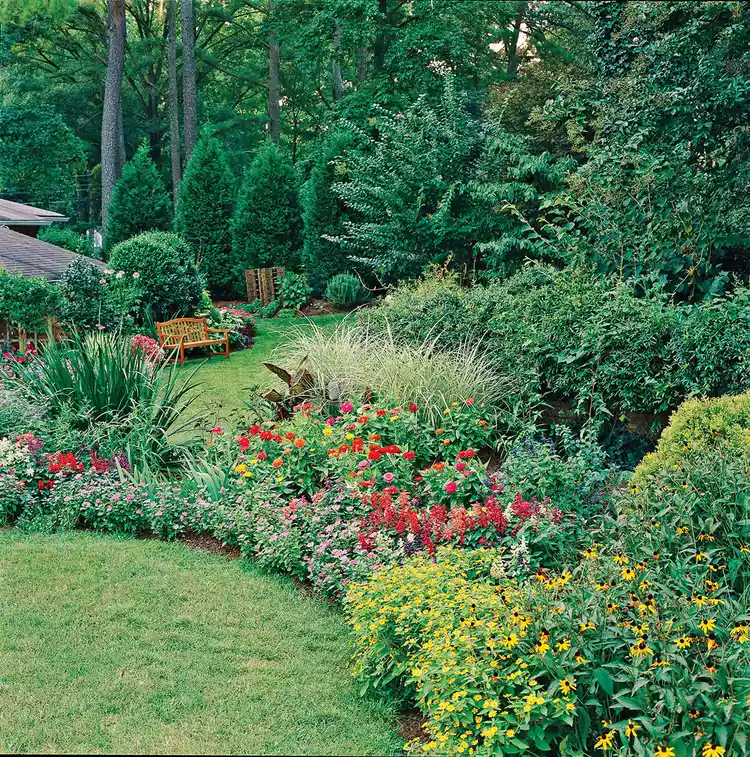As cute as raccoons are, they are particularly mischievous animals that can do a lot of damage to lawns and gardens and wreak havoc in backyard chicken coops. Most often, raccoon visitors are just passing through, and they don’t stick around areas for long. But there are ways to prevent and safely remove troublesome raccoons from your property, and you’ll find some of the best tips right here.
What Attracts Raccoons to Your Yard?
Raccoons usually don’t stay around human habitations for long unless they have babies or they’ve found a reliable food source. So if you’re having raccoon problems in your lawn or garden, you’ll first need to figure out exactly what’s attracting raccoons to your property.
Often, raccoons are drawn in by pet food that’s left outdoors, an open compost pile, or an easily accessible garbage bin. Open holes under porches and patios or easy access points into attics can also look particularly appealing to mother raccoons as they hunt for safe spots to raise their young. Addressing these sorts of vulnerabilities can make your property less inviting to raccoons and help you avoid a hefty pest control bill in the future.
Signs of Raccoon Visitors
Sometimes you may see raccoons, or you may hear them making strange hissing, chattering, scratching, or snarling sounds. However, raccoons are nocturnal animals that do most of their work at night, so you may never see them at all. Instead, you may find signs of raccoon activity, such as:
- Holes dug in gardens and lawns. Raccoons usually create these holes when digging for garden grubs.
- Raccoon footprints in wet, muddy areas. Unlike other garden visitors, raccoons have distinctly long toes, which make their footprints easy to identify.
- Scratch marks. You may find claw marks on the edge of porches or near other access points where raccoons are nesting. Screens and grates may also be pushed aside.
- Overturned trash cans and compost bins. Raccoons can create quite a mess when they knock over trash bins or dig holes in open compost piles.
- Crop damage. Raccoons are not particularly picky eaters, and they happily feed on an assortment of crops, including strawberries, potatoes, peas, and fruit trees. They’re also notoriously fond of melons and corn and may push over entire cornstalks and leave half-eaten melons and corn cobs in their wake.
- Other damage. Although raccoons eat fruit and veggies, they are omnivorous animals that can also feed on birds, small mammals, fish, and amphibians. If you keep a fish pond or chicken coop, you may need to be doubly careful, as raccoons can sometimes eat backyard chickens and koi.
How to Prevent and Get Rid of Raccoons
If raccoons aren’t causing problems, you may want to leave them be and just let them move along in their own time. Raccoons usually have their young during the spring, so it’s best to leave them alone at this time of the year, as disturbing nesting raccoons can separate parents from their young and do more harm than good. However, if you need to relocate raccoons for safety reasons or you’d just like to prevent raccoons from making a home near your home, the tips below will help.
Eliminate Food and Water Resources
Raccoons are more likely to stay in areas with a food source, so the best way to prevent raccoon problems and encourage existing raccoons to travel elsewhere is to remove easy sources of food. That means putting outdoor pet food and bird feeders away at night, securing garbage bin lids and compost piles, raking up windfallen fruit, and emptying out bird baths and decorative fountains until raccoons leave the area. If you have a fish pond or chicken coop, stow chicken feed in pest-proof feeders, lock up coops tightly at night, and consider adding mesh over ponds to protect fish from furry bandits.
If raccoons are digging up lawns in search of grubs, it may be time to address grub issues by applying organic products like milky spore.
Do a Good Garden Cleanup
Brush piles, overgrown shrubs, and long grasses can provide hiding spots for raccoons, as well as shelter for the small rodents that raccoons sometimes feed on. Pruning shrubs, cutting tall grasses, and cleaning up other garden debris can make raccoons feel more exposed and less inclined to stay on your property.
Reduce Access Points
Open areas under porches and outbuildings or easy entrances to attics and crawlspaces can invite raccoons to move right on in. Securing these access points with grates, fencing, or hardware cloth is always a good idea, regardless of whether you’re trying to deter raccoons or another furry creature. Just be sure to check crawlspaces and attics for animals and their young before closing them up.
Add Raccoon Baffles
Raccoons can sometimes scramble up bird feeder poles or crawl up bird box posts and raid feeders and nests for seeds, eggs, and young birds. However, you can keep birdhouses and feeders much safer by mounting them at least 5 feet above the ground and adding a raccoon baffle. Sheet metal loosely wrapped around fruit trees is also useful for preventing raccoons from scrambling into tree branches and gobbling up the fruit.
Install Fencing
Fencing doesn’t always work against raccoons, as these pesky critters can climb quite well. But if you angle fencing outward and bury the bottom of fences at least 6 inches deep, they are more effective. For even better results, consider adding electric fencing around vegetable gardens, but make sure to use a voltage that’s safe for small animals.
Experiment with Deterrents
Gardeners have come up with lots of creative ways to repel raccoons, and some techniques work better than others. A good rule of thumb is to try several different deterrents at once and to swap deterrents out from time to time to keep raccoons and other pests from getting used to a single product.
Blood meal, garlic sprays, cayenne sprays, peppermint oil, and predator urine can all be used to deter raccoons and urge resident raccoons to move elsewhere. You may also want to experiment with scarecrows, owl decoys, flashing lights, motion-activated sprinklers, pie tins or streamers, or leave the radio on in your garden at night. Unfortunately, many of these products will also repel other garden visitors, like songbirds and fireflies, so you may want to use them sparingly.
Try Out Companion Planting
Companion planting is mostly used to prevent pest insects, but some companion plants can also safeguard veggies from the unwanted attentions of raccoons. Specifically, cucumbers and squash
plants are known to repulse raccoons, thanks in part to their prickly stems and leaves. If you’re dealing with raccoon woes, growing these plants near sweet corn can help prevent raccoon damage and preserve your corn harvest.
Trapping and Removal
Trapping raccoons should be a last resort as it can be quite a hassle and raccoons often don’t survive relocation. On top of that, trapping is illegal in some areas, and in other areas you may need a permit to remove raccoons. It’s usually best to allow raccoons to move on in their own time, but if you need to remove them for safety reasons, it’s always recommended to have professionals do the work for you.
If you do decide to relocate raccoons yourself, avoid moving raccoons in spring when they have their young and follow local laws and regulations. Use an appropriately sized live trap, release raccoons far from human habitation, and never use poisoned baits, which can harm non-target animals like pets and birds of prey. Instead, bait traps with chicken, pet kibble, or whole peanuts and handle traps with extra care, as raccoons can carry diseases and trapped raccoons can be particularly feisty.




















